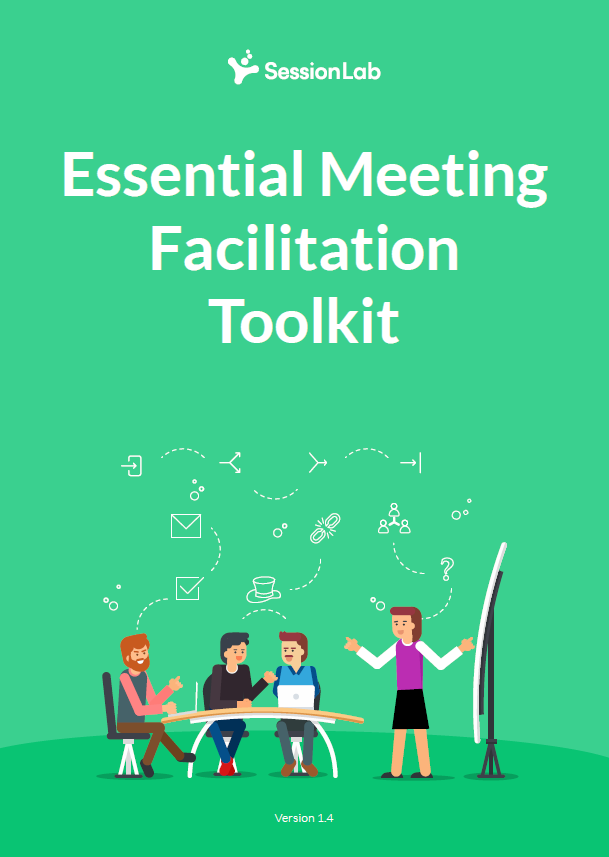Process Tools Facilitation Workshop
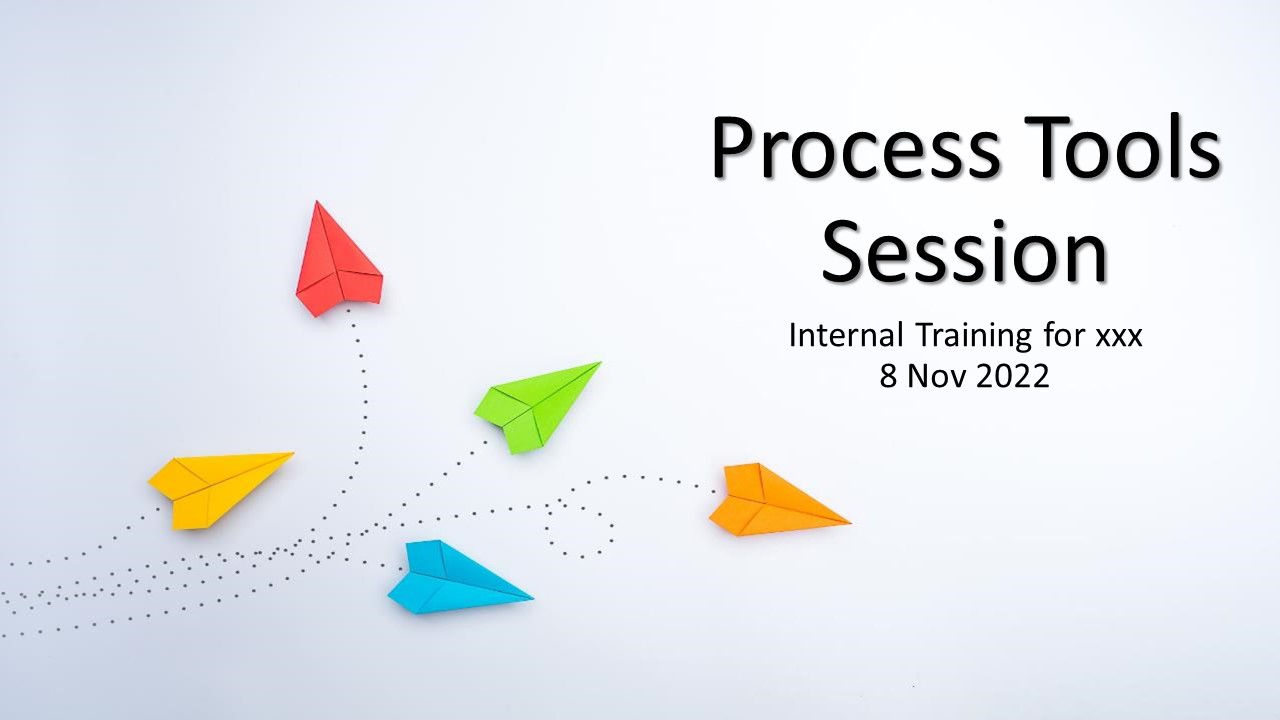
Description: The "Process Tools Facilitation" workshop was a 4-hour session that I designed and facilitated. The workshop aimed to support the Team Leads and Workplan Facilitators to design, develop, and facilitate sessions to support their team's year-end Domain Workplan.
Stakeholders: Team Leads and Department Workplan Facilitators
Responsibilities: As the Instructional Designer and Facilitator of the workshop, my responsibilities included:
- Designing the workshop content and activities based on identified needs.
- Facilitating the session and ensuring active participation.
- Assessing the effectiveness of the workshop.
- Enhancing transfer and retention
Duration: November 2022
Tools used: To develop the workshop content, I utilized the book "Facilitation at a Glance!" written by Ingrid Bens. This resource provided valuable insights on the role of a facilitator, facilitation stages, and high-participation techniques. Additionally, I drew inspiration from the "ENGAGE" instructional design model outlined in Vicki Halsey's book, "Brilliance by Design."
I have made available the Session Design and the "Generate Meaning Template" for your own personal use.
PROBLEM:
I was involved with my department’s workplan cycle over a few years playing the role as either Chairperson or lead workplan facilitator. As follow up to the workplan, we had to collate returns from all teams and submit our initiatives for the new work year to our Strategic Transformation Office (STO). I noticed that the output from the domain team workplans were inconsistent and at times not of very good quality. I did a quick needs analysis with the Team Leads and identified that their officers lacked the skills to design, develop, and facilitate sessions that would effectively support their team's year-end Domain Workplan. This skill gap hindered their ability to engage their teams and achieve desired outcomes within the given workplan.
SOLUTION:
The solution was to design and facilitate a "Process Tools Facilitation" workshop. By providing Team Leads and their workplan leads with training in facilitation techniques and equipping them with a variety of process tools, the workshop aimed to enhance their ability to design and deliver effective sessions aligned with their year-end Domain Workplan.
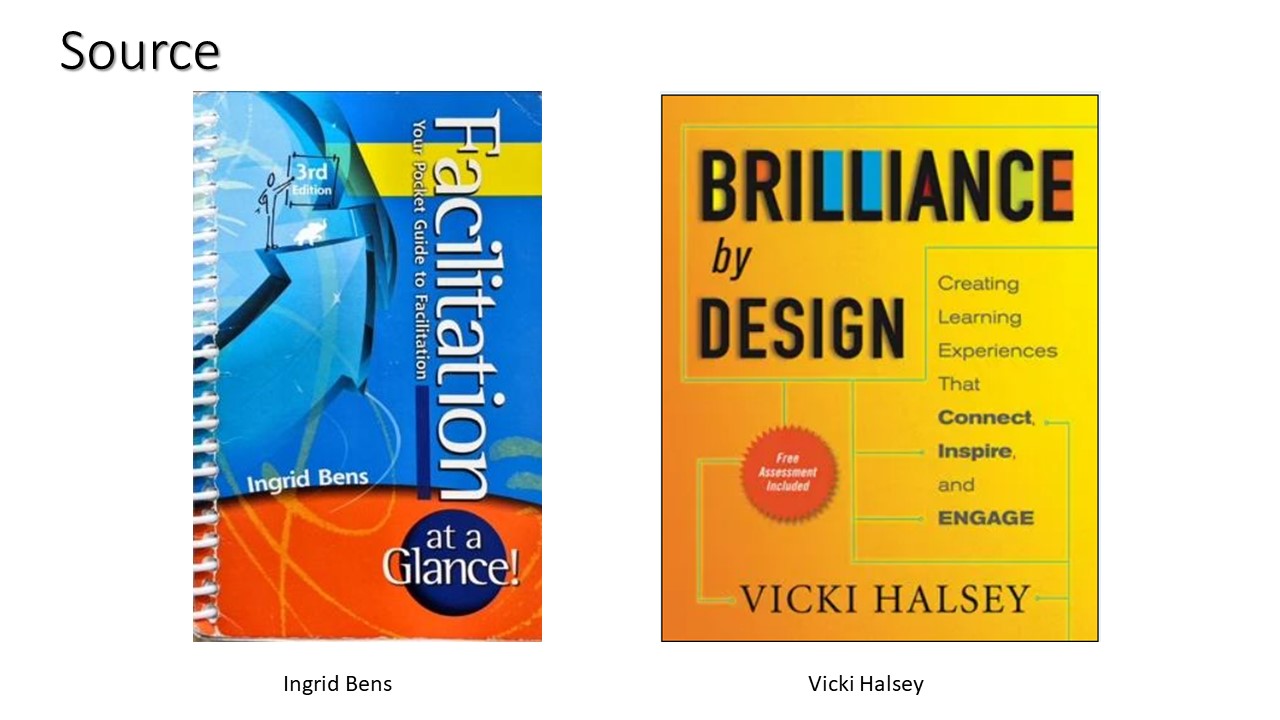
I used content from two books:
- "Facilitation at a Glance!" written by Ingrid Bens. This resource provided valuable insights on the role of a facilitator, facilitation stages, and high-participation techniques.
- I drew inspiration from the "ENGAGE" instructional design model outlined in Vicki Halsey's book, "Brilliance by Design."
PROCESS:
Invitation:
After I pitched and obtained approval from my director to conduct this workshop, I sent out an email to the Team Leads to get them interested in attending this workshop. Here’s the sample invitation email that was sent.
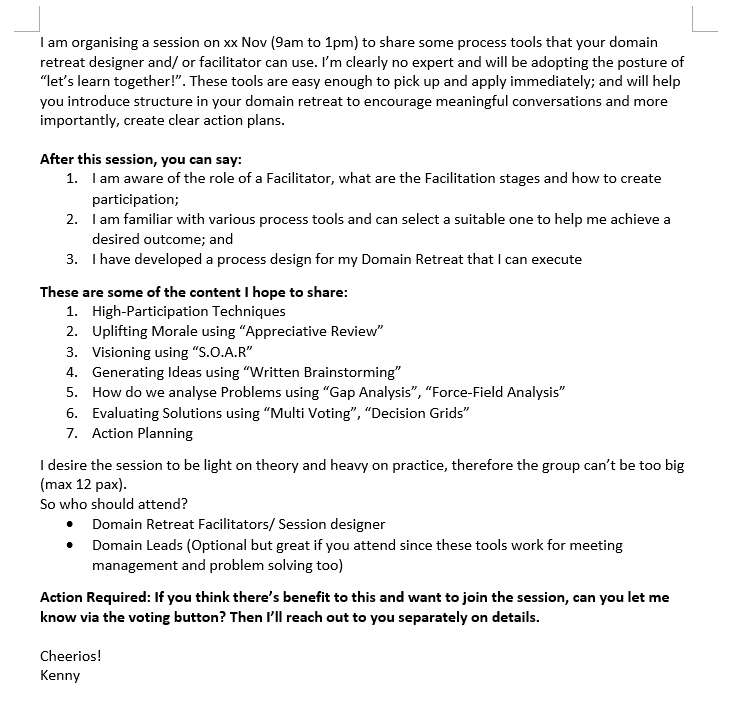
During Workshop:
This was the scope that I covered:
- Introduced participants to the core concepts of facilitation, differentiating it from training, and understanding the role of a facilitator.
- Explored the stages of facilitation and identified high-participation techniques to create an engaging environment.
- Introduced various process tools, such as appreciative review, goal setting, brainstorming, and troubleshooting, to facilitate effective sessions aligned with the year-end Domain Workplan.
- Facilitated hands-on activities where participants practiced using process tools and selecting suitable ones for specific outcomes.
- Provided guidance on integrating learned techniques into their own facilitation practices.
- Assessed participants' understanding and skill application through feedback and self-reflection.
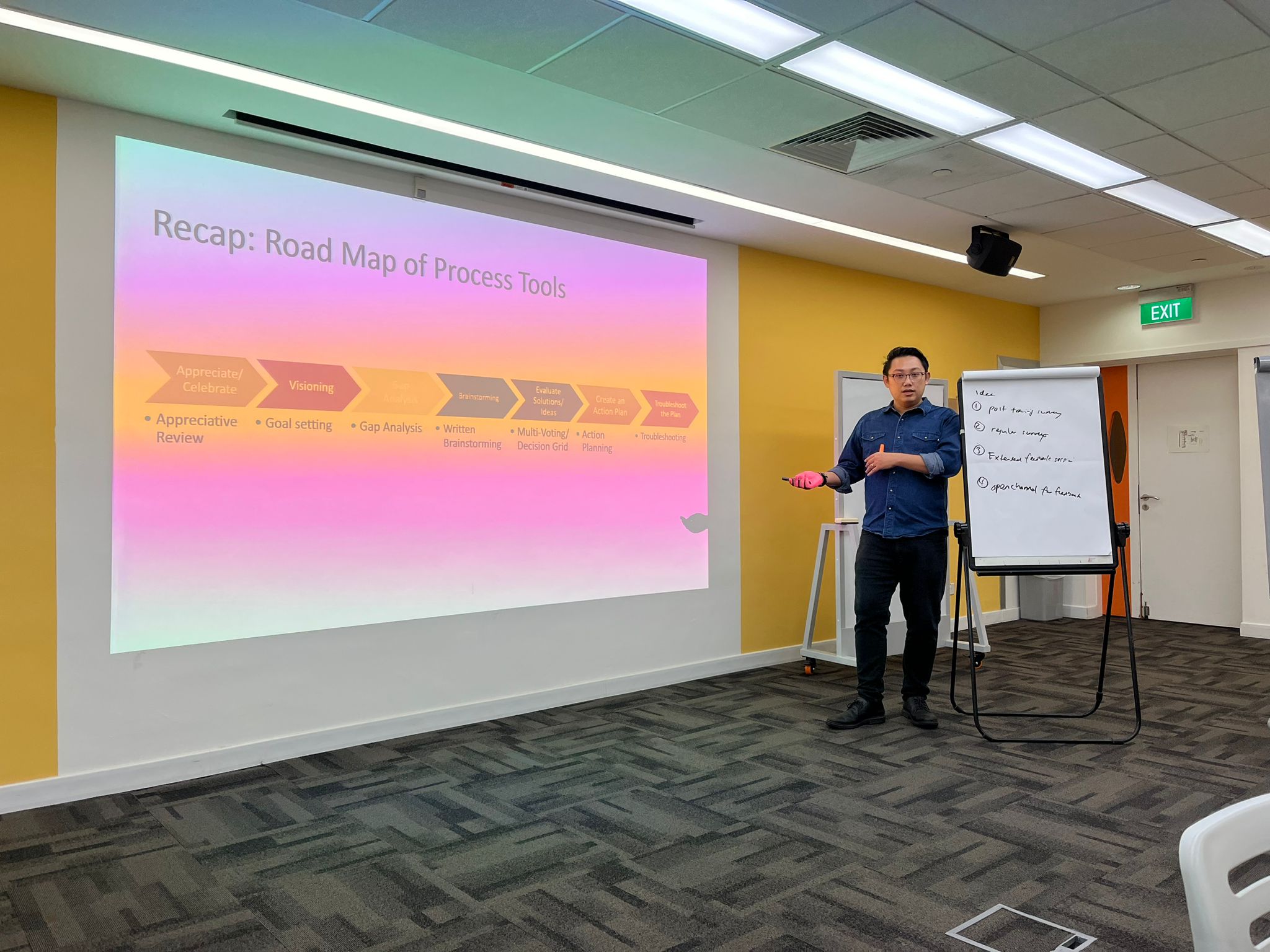
I followed the "ENGAGE" instructional design model and mixed it up with some of Gagne’s 9 event of instruction. Here I’ll describe how I used the “ENGAGE” instruction design model to design the workshop.
E for Energise Learners:
I started the workshop off with an activity as an energizer to get people talking early. This helped in getting active and not passive participants.
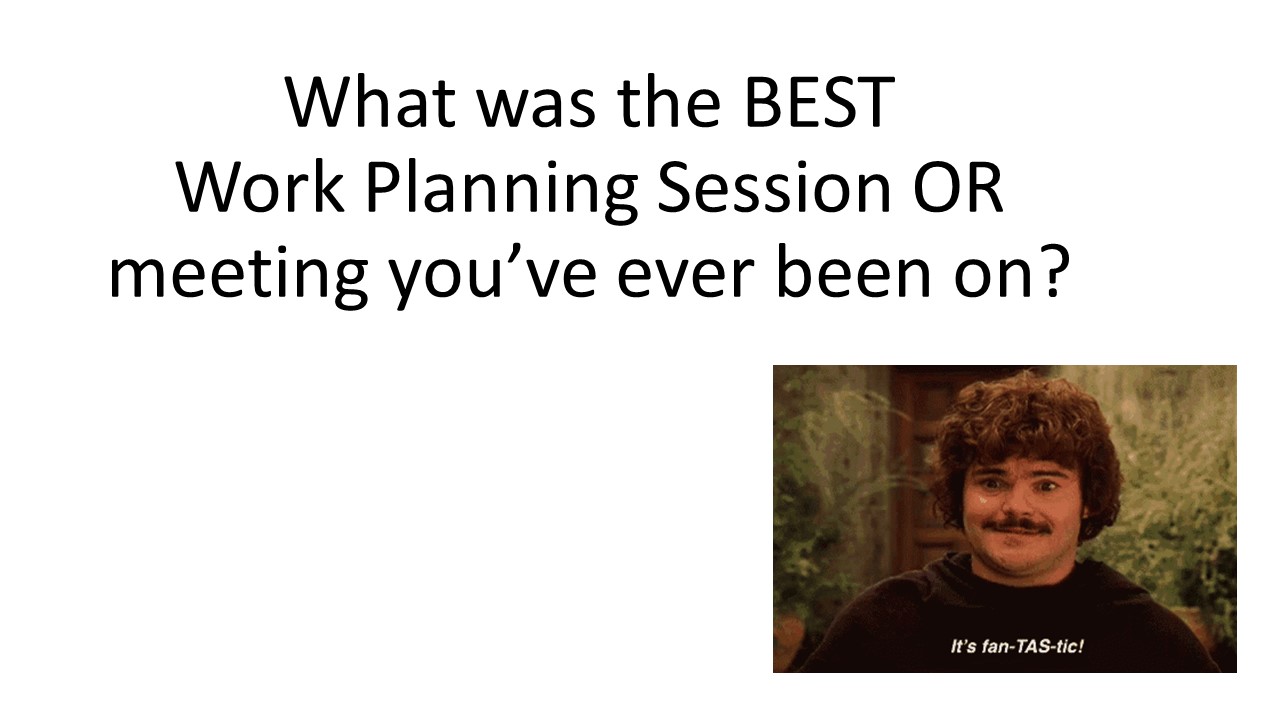
Participants had to answer this question “What was the best Work Plan Session you’ve ever been on?” and had to “Think, Pair, Share”. Thereafter I selected a few participants to share back.
N for Navigate Content:
Throughout the workshop I used different activities to help participants navigate the content. Some of them include:
- Powerpoint
I presented content through powerpoint, taking care to vary the activity after every 7 minutes of “telling”. This helped to shift the energy and keep everyone engaged.
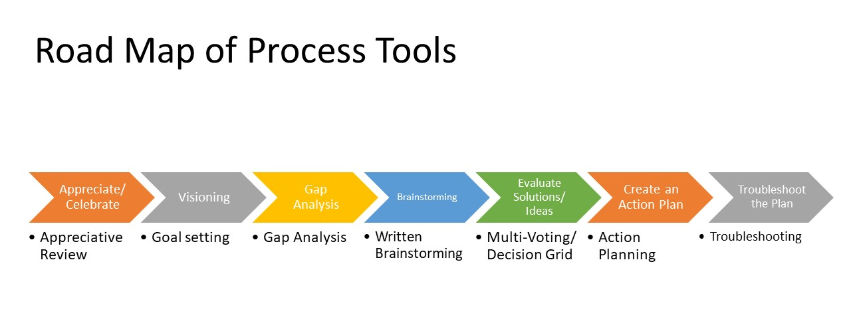
- Another activity I used was KWL which help participants realize what they already know, link it to what the new content offers and connect that to what their hopes are. Participants were given this as a template which they’ll fill in at the start of the workshop.
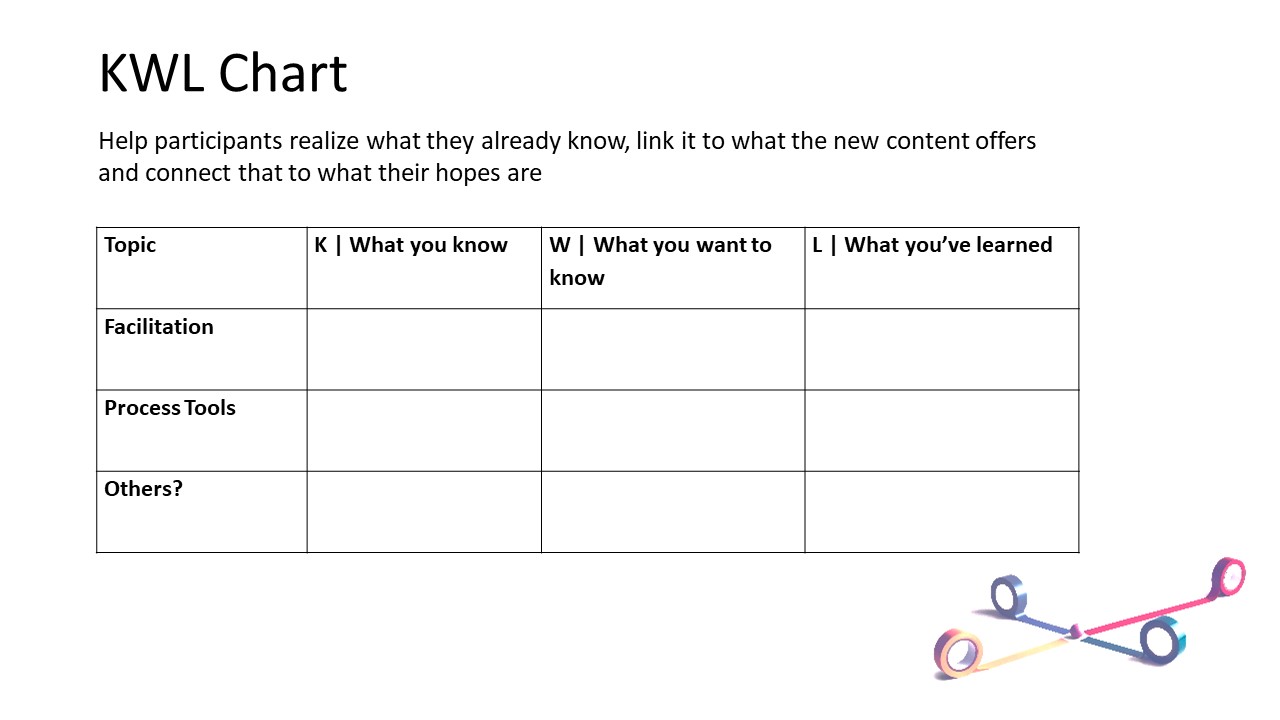
- Role-Play allow participants to practise facilitation core practices. Here were the instructions for the activity.
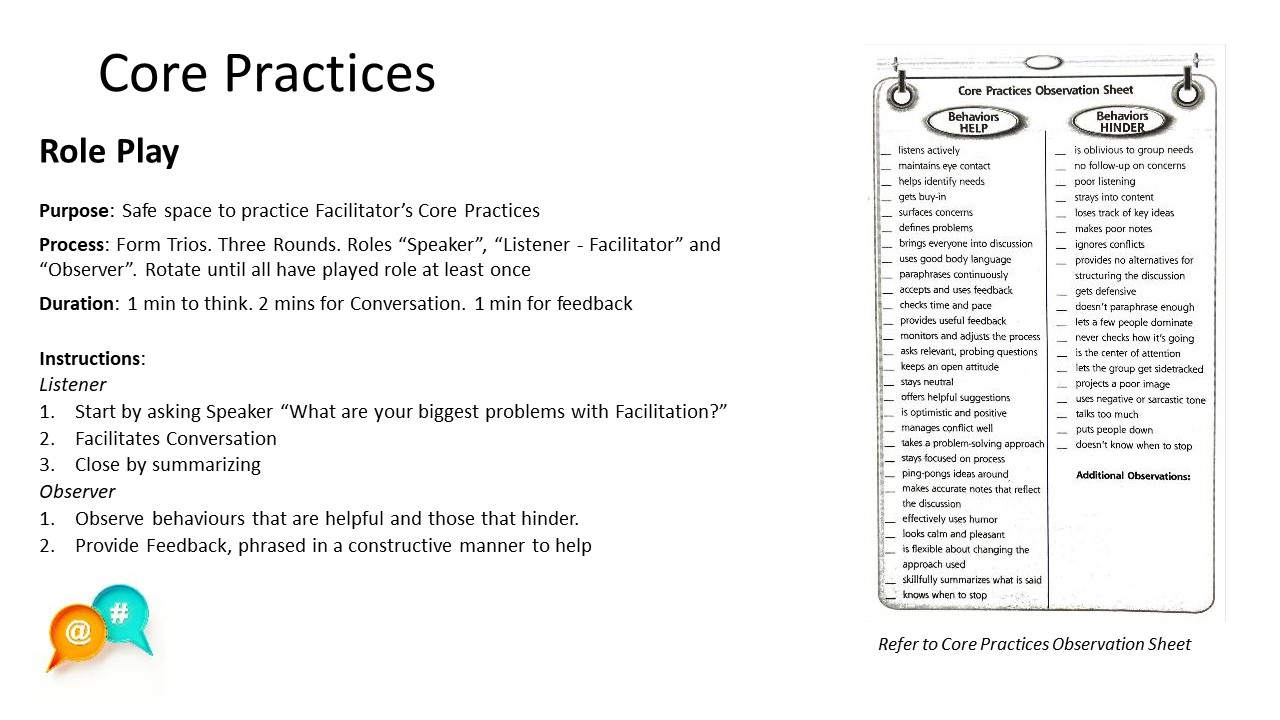
G for Generate Meaning:
It was important to help participants move learning to long-term memory. I did that by getting participants to fill in a template throughout the various workshop segments on what they have learned and why it is important to them
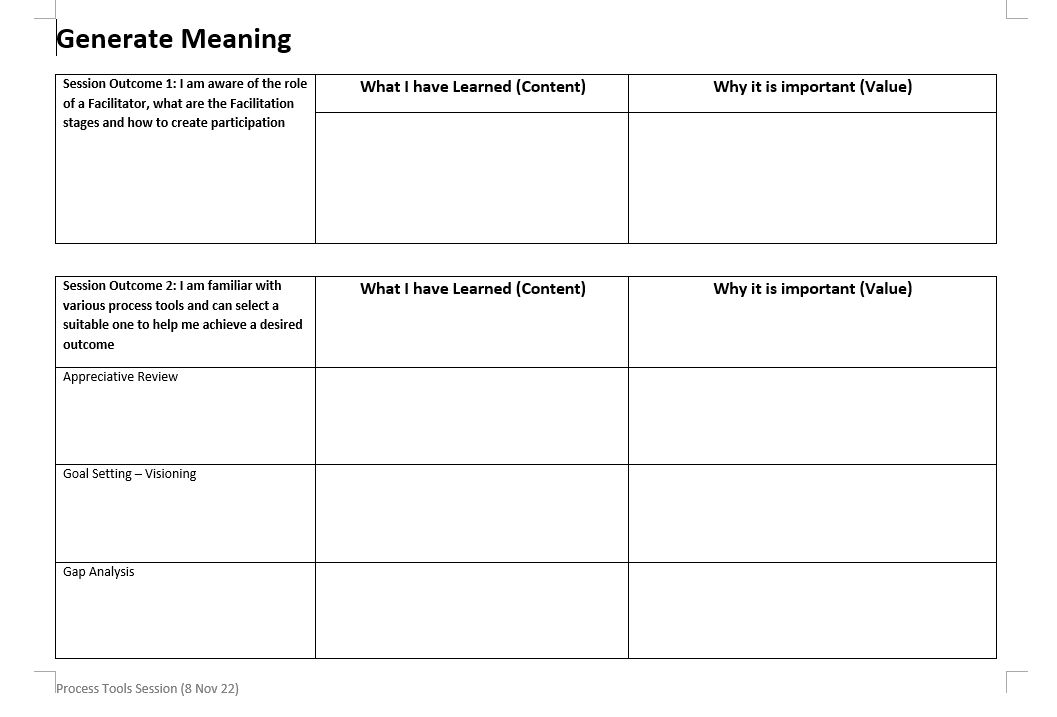
A for Apply to real world:
Participants were expected to demonstrate the skills they have learned and I used the role plays as an opportunity to practise as well as allow observations and real-time feedback from their team mates.
G for Gauge and Celebrate:
To review and celebrate all that we’ve learned while moving concepts from short-term memory to long-term memory, I invited participants to create a Mind Map on the Process Tools (Content).
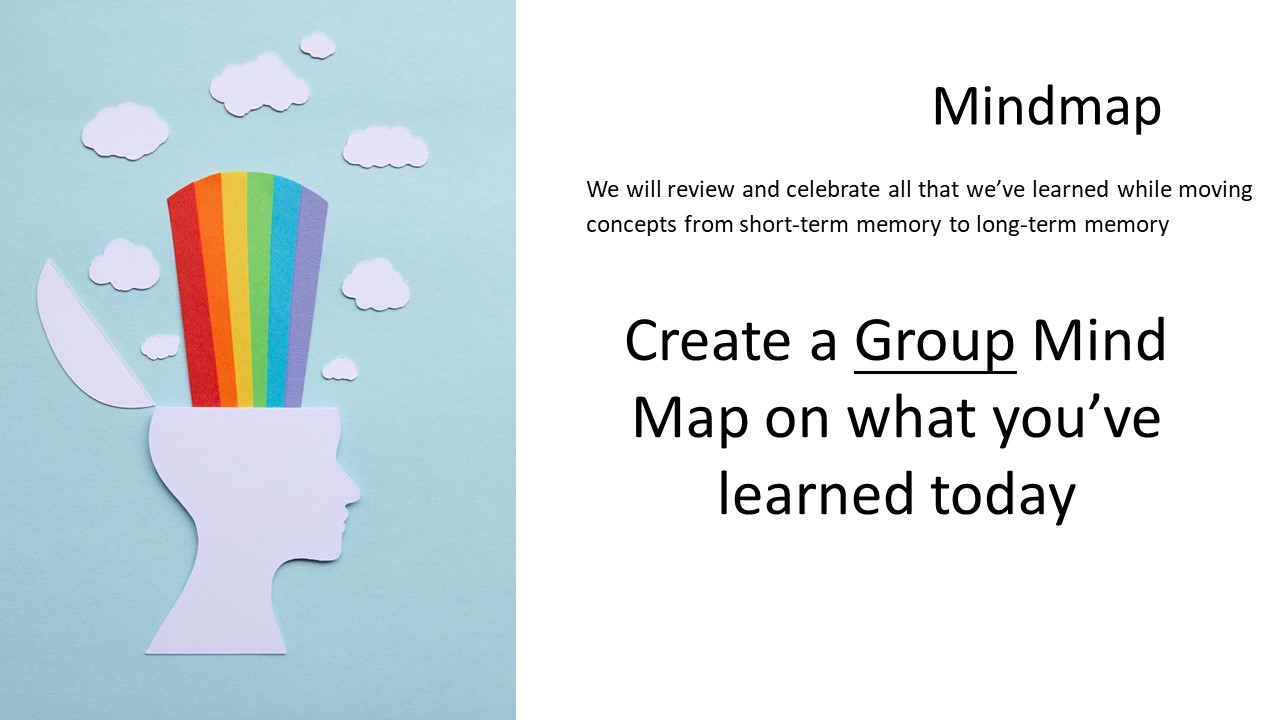
E for Extend learning to action:
To help enhance transfer of concepts, post-workshop I sent out follow-up summaries and invited participants to share their success stories. I also shared resources from SessionLab on "Essential Meeting Facilitation Toolkit" to extend their learning.
You can download a free copy here: Link.
REFLECTIONS:
Throughout the workshop, I observed participants becoming more aware of the facilitator's role and understanding the stages of facilitation. They actively engaged in the activities and demonstrated their ability to select suitable process tools to achieve desired outcomes. Participants appreciated the practical nature of the workshop, which allowed them to immediately apply their newly acquired skills. Overall, the workshop fostered a sense of confidence and empowerment among the Team Leads and workplan designers in facilitating sessions aligned with their team's year-end Domain Workplan.
My regret was on time management. I underestimated the time needed to cover all the content over 4 hours and was rushing towards the end. Given another chance, I would reduce the content to what are “Must knows” or allocate more time for the workshop or split the session into two separate days.
RESULTS:
The workshop yielded positive outcomes, as reflected in participants' feedback and improved performance in designing and facilitating sessions. Team Leads reported feeling more confident in their facilitation skills and expressed satisfaction with the selection and application of appropriate process tools. Their ability to support their team's year-end Domain Workplan significantly improved, leading to generating better quality work plans as well as allowing me to report higher quality work plans to our Strategic Transformation Office.
